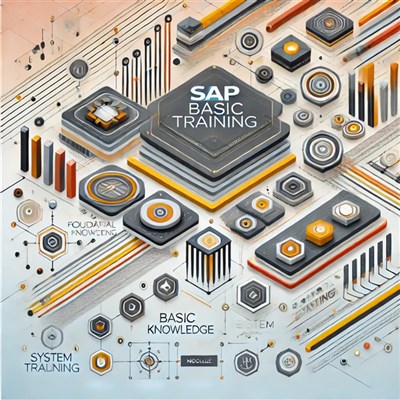
In today's rapidly evolving business landscape, senior management roles demand a diverse skill set to effectively navigate complex challenges and drive organizational success. Senior management courses are designed to equip current and aspiring leaders with the competencies needed to excel in high-stakes environments. This blog explores the essential skills taught in these programs, highlighting how they contribute to effective leadership and organizational growth.
Skills Taught in Senior Management Courses
1. Strategic Thinking
One of the cornerstone skills taught in senior management courses is strategic thinking. Senior managers are responsible for setting the long-term vision and direction of their organizations, making it crucial to develop the ability to think critically and strategically.
- Market Analysis: Participants learn how to analyze market trends, competitive landscapes, and customer needs, allowing them to make informed strategic decisions.
- Vision Setting: Courses emphasize the importance of crafting a clear vision and mission that aligns with organizational goals, ensuring that all stakeholders understand and buy into the direction.
- Long-Term Planning: Students develop skills in creating and implementing strategic plans that anticipate future challenges and opportunities, balancing immediate needs with long-term objectives.
By enhancing their strategic thinking abilities, senior managers can guide their organizations through uncertainty and capitalize on emerging opportunities.
2. Leadership and Team Management
Effective leadership is vital in any organization, and senior management courses place significant emphasis on developing leadership skills.
- Leadership Styles: Participants explore various leadership styles and learn how to adapt their approach to meet the needs of diverse teams and situations.
- Motivation and Engagement: Courses teach leaders how to inspire and motivate their teams, fostering a culture of high performance and engagement.
- Conflict Resolution: Effective leaders must manage conflicts within their teams. Courses provide strategies for resolving disputes and maintaining a positive working environment.
These leadership competencies are essential for building cohesive teams that work collaboratively toward common goals.
3. Communication Skills
Strong communication skills are crucial for senior managers, as they must articulate their vision, strategies, and expectations clearly to various stakeholders, including employees, clients, and board members.
- Presentation Skills: Courses often include training on effective presentation techniques, helping managers convey their ideas persuasively and confidently.
- Active Listening: Participants learn the importance of active listening in understanding team dynamics and fostering open communication.
- Cross-Functional Communication: Senior managers frequently work across departments. Training includes strategies for effective communication with diverse teams and stakeholders.
By honing their communication skills, senior managers can build trust, improve collaboration, and drive organizational success.
4. Financial Acumen
In today’s data-driven business environment, a strong understanding of financial principles is critical for senior managers. Courses focus on developing financial acumen to enable leaders to make informed business decisions.
- Budgeting and Forecasting: Participants learn how to create and manage budgets, forecast financial performance, and make resource allocation decisions.
- Financial Analysis: Courses teach managers how to interpret financial statements, assess the financial health of the organization, and identify areas for improvement.
- Investment Decisions: Understanding how to evaluate investment opportunities and calculate returns on investment is crucial for long-term growth.
With robust financial skills, senior managers can ensure their organizations are financially sound and poised for growth.
5. Change Management
Change is a constant in today’s business world, and senior managers must be adept at managing transitions effectively. Change management skills are essential for ensuring that organizational changes are implemented smoothly and successfully.
- Understanding Change Dynamics: Courses explore the psychological aspects of change, helping managers understand how employees respond to change and how to address their concerns.
- Creating Change Strategies: Participants learn how to develop and implement change management plans that minimize disruption and maximize engagement.
- Communication During Change: Effective communication is critical during times of change. Courses teach leaders how to communicate the reasons for change and maintain transparency throughout the process.
By mastering change management, senior managers can lead their organizations through transitions while minimizing resistance and maximizing buy-in.
6. Decision-Making and Problem-Solving
Effective decision-making is a fundamental skill for senior managers, who must navigate complex challenges and make choices that impact the entire organization.
- Analytical Thinking: Courses enhance analytical thinking skills, enabling managers to assess situations, weigh options, and make informed decisions based on data.
- Risk Assessment: Participants learn how to identify potential risks associated with decisions and develop mitigation strategies to minimize negative impacts.
- Collaborative Decision-Making: Effective leaders often involve their teams in the decision-making process. Training covers techniques for fostering collaboration and inclusivity in decision-making.
With strong decision-making and problem-solving skills, senior managers can respond effectively to challenges and capitalize on opportunities.
7. Organizational Behavior and Culture
Understanding organizational behavior is essential for senior managers, as it helps them navigate the complexities of team dynamics and workplace culture.
- Cultural Awareness: Courses emphasize the importance of recognizing and respecting diverse perspectives and backgrounds within teams.
- Building Organizational Culture: Participants learn how to shape and influence organizational culture to foster a positive and inclusive work environment.
- Employee Engagement: Understanding the factors that drive employee engagement is critical for retention and productivity. Courses cover strategies for creating an engaged workforce.
By mastering organizational behavior, senior managers can create a work environment that supports employee satisfaction and performance.
8. Networking and Relationship Building
Building a strong professional network is a key component of effective leadership. Senior management courses often include modules on networking and relationship building.
- Building Connections: Participants learn techniques for developing meaningful connections with peers, industry leaders, and stakeholders.
- Leveraging Networks: Courses teach how to leverage professional networks for support, collaboration, and career advancement.
- Mentorship: Understanding the value of mentorship and how to cultivate mentor-mentee relationships is emphasized.
Effective networking skills enable senior managers to access valuable resources and support throughout their careers.
9. Innovation and Creativity
In an increasingly competitive landscape, innovation is crucial for sustained success. Senior management courses encourage creative thinking and innovation.
- Fostering a Culture of Innovation: Courses teach leaders how to create an environment that encourages innovation and creative problem-solving among their teams.
- Design Thinking: Many programs introduce design thinking methodologies, which focus on understanding user needs and developing innovative solutions.
- Risk-Taking: Participants learn to embrace calculated risks and understand that failure can be a stepping stone to success.
By fostering innovation, senior managers can position their organizations as leaders in their industries.
10. Global Perspective
In an interconnected world, having a global perspective is increasingly important for senior managers. Courses often explore the impact of globalization on business strategies.
- Cross-Cultural Competence: Participants learn how to navigate cultural differences and lead diverse teams effectively.
- Global Market Trends: Understanding global market dynamics and their impact on local operations is critical for informed decision-making.
- International Business Strategies: Courses cover strategies for expanding into international markets and understanding regulatory environments.
A global perspective enables senior managers to lead organizations in a way that capitalizes on international opportunities.
Conclusion
Senior management courses provide invaluable training for developing the essential skills needed to excel in leadership roles. From strategic thinking and financial acumen to change management and innovation, the competencies acquired through these programs empower leaders to drive organizational success in an increasingly complex business environment.
As you consider advancing your career through a senior management course, remember that the skills you acquire will not only benefit you personally but will also enhance your organization’s effectiveness and resilience. In a world where change is the only constant, investing in your development as a senior leader is a strategic choice that pays dividends in the long run.
In summary, online courses for senior management can be a game-changer for individuals looking to enhance their leadership skills and career prospects. Whether it's strategic planning, decision making, communication, or team management, these courses cover all the bases, providing a holistic approach to senior management training.
Choose Koenig Solutions for your senior management training needs and take the first step towards becoming a more effective leader.







COMMENT